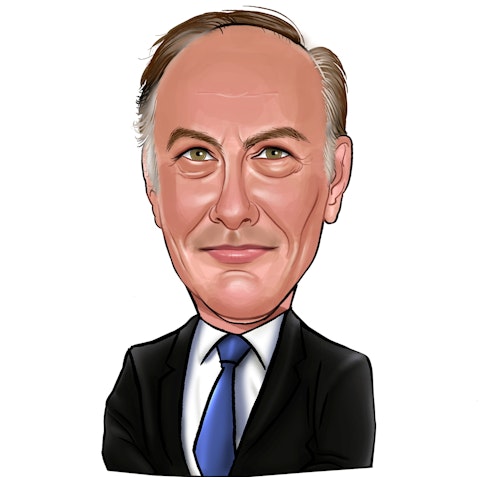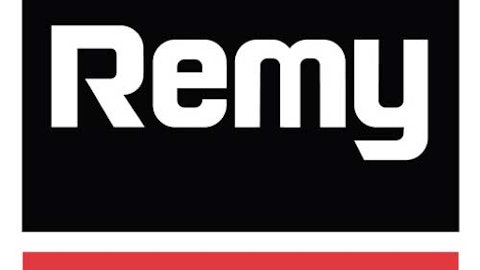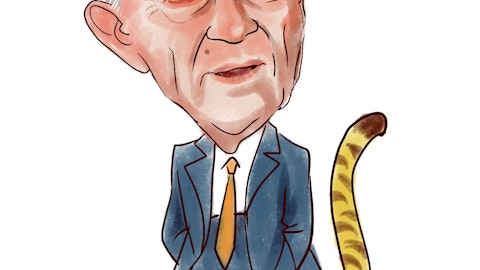Just recently, we wrote about how Philip Goldstein (pictured), Andrew Dakos and Steven Samuel’s Bulldog Investors has been bulking up its Hill International Inc (NYSE:HIL) stake. The story has taken a new turn, as Goldstein is actively seeking the appointment of his nominees to the board of Hill International in an attempt to revisit a bid for the company made in May, which the father and son executive team of Irvin (CEO) and David Richter (COO) rejected, claiming that the shareholders will do better under their management. In his letter, Goldstein highlights the inefficiencies of the company under the Richter’s management and their utter disregard for shareholders as they continue to waste the company’s financial resources on their personal luxuries.

Bulldog Investors is renowned for its activist campaigns, which total more than 60 since the fund was established in 1992. Regulatory assets under the fund’s management amount to $619 million and the market value of Bulldog’s public equity portfolio stood at $261.94 million as of March 31. Currently the firm holds about 3.33 million shares of Hill International Inc (NYSE:HIL) valued at $15.92 million based on the current stock price. The holding amasses about 6.61% of the company’s outstanding shares.
Follow Phillip Goldstein, Andrew Dakos, And Rajeev Das's Bulldog Investors
Following activist funds like Bulldog Investors is important because it is a very specific and focused strategy in which the investor doesn’t have to wait for catalysts to realize gains in the holding. A fund like Bulldog can simply create its own catalysts by pushing for them through negotiations with the company’s management and directors. In recent years, the average returns of activists’ hedge funds has been much higher than the returns of an average hedge fund. Furthermore, we believe do-it-yourself investors have an advantage over activist hedge fund investors because they don’t have to pay 2% of their assets and 20% of their gains every year to compensate hedge fund managers. We have found through extensive research that the top small-cap picks of hedge funds are also capable of generating high returns and built a system around this premise. In the 34 months since our small-cap strategy was launched it has returned over 123% and beaten the S&P 500 ETF (SPY) by more than 66 percentage points (read more details).
The only significant upward move that Hill International Inc (NYSE:HIL)’s shares have seen in the last year was after the announcement of the takeover bid, when shares spiked by more than 30% over the course of a couple of days. Despite that, the stock is still down by more than 12% over the last 12 months. Goldstein wants to reopen the takeover case, as he mentions in his letter:
On May 2, 2015, a private investment firm announced an offer to purchase Hill for at least $5.50 per share, a premium of 40.7% over the prior day’s closing price. The Richters blew it off and claim shareholders will do better under their leadership. We disagree. We think it is time to engage an investment banker to explore all avenues to maximize stockholder value.
In the seven years between 2007 and 2014 following the Richter’s taking the reins of the company, the compensation of the duo has increased by more than 200% to about a combined $6.41 million according to Goldstein’s proxy statement. The shares on the other hand have slumped by about 47.2% during this period. The activist also drew attention to another incident which highlights the misalignment of the management’s interests with those of the shareholders. The incident in question involved the Richters collectively selling about two million of their shares on November 28, 2008, when the stock price was $5.50, in non-market transactions. The explanation given to the shareholders was that the sale was executed owing to margin calls on personal loans which were collateralized by the company’s shares. Goldstein added to the stories of extravagance by stating that David Richter’s palatial office surpasses in lavishness almost any other CEO’s, and certainly isn’t fit for the head of a small public company, especially one of Hill International Inc (NYSE:HIL)’s stature, which is suffering from a depressed valuation.
Professional money managers are losing interest in the company as well. Among the funds that we track, only 12 had an aggregate investment of $23.23 million in the company at the end of March, down from 13 firms with $24.67 million in holdings at the end of the previous quarter. Peter Schliemann‘s Rutabaga Capital Management is the largest stockholder of the company within our database, holding about 3.57 million shares valued at $12.80 million as of March 31.
Disclosure: None



